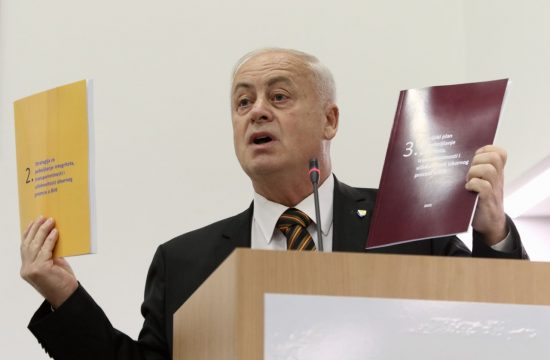
In a report published on Thursday, the Council of Europe's Group of States against Corruption (GRECO) urged authorities of Bosnia and Herzegovina to “strengthen their efforts and overcome the political blockages that hold back certain reforms from taking place in order to prevent corruption amongst persons with top executive functions.”
This includes “members of the Presidency and their Heads of Office and advisers, the Chair of the Council of Ministers, Ministers, Deputy Ministers and their Heads of Office and advisers and members of the Border Police and State Investigation and Protection Agency (SIPA)”, GRECO said.
.
It noted that there is a legal vacuum in terms of corruption prevention policies in the country and called for adopting an operational corruption prevention action plan based on a risk assessment, “specifically targeting persons with top executive functions.”
“In addition, clear guidance regarding conflicts of interest and other integrity-related matters should be developed in a code of conduct for persons with top executive functions. The Agency for Prevention of Corruption and Coordination of the Fight against Corruption (APIK) should also be provided with adequate financial and human resources to perform its tasks effectively,” it said.
It also called for an independent review of the legislation governing freedom of information should be carried out to address existing problems such as “the lack of responsiveness of the authorities to requests information.”
“The system for managing conflicts of interest of persons with top executive functions should also be reviewed and strengthened, notably by ensuring that statements of interests are subject to regular substantive checks. In the same vein, all persons with top executive functions should be subject to the same disclosure requirements, irrespective of whether they are elected or not, and all declarations should be made systematically, easily (?) made public and accessible online for transparency and accountability purposes,” it said.
GRECO urged BiH authorities to set up a system of regular anti-corruption action plans +with clear goals based on identified risks and an external assessment of their achievement. IT noted that the existing codes of ethics of the Border Police and SIPA need to be supplemented with practical guidance illustrating all issues and risk areas with concrete examples.
“Training on ethics and integrity for new recruits and serving personnel should be based on the practical guidance to be adopted for the codes of ethics and be compulsory for all. Security checks relating to the integrity of police officers also need to be carried out at regular intervals throughout their career and a system of asset declarations should be put in place,” it said.
GRECO also stressed the need for introducing further measures to promote “a more gender-balanced representation in all ranks”, to ensure that appointments of top police officials in the Border Police and SIPA are “based on merit and guided by open, standardised and transparent competitions and to introduce an institutional system of rotation of police staff in risk-prone areas.”
“Additionally, a legal provision defining incompatibilities with policing duties should be adopted and authorised secondary activities need to be duly recorded. Moreover, rules should be adopted to ensure transparency and limit the risks of conflicts of interest when police officers leave the Border Police and SIPA to work in other sectors. Finally, the protection of whistleblowers should be reviewed and strengthened,” it said.
GRECO announced that it will assess the implementation of these recommendations in 2024.





Kakvo je tvoje mišljenje o ovome?
Budi prvi koji će ostaviti komentar!